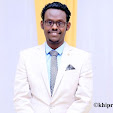As Somalia’s COVID-19 cases surge, a variant is suspected
MOGADISHU, Somalia (AP) — A resurgence of COVID-19 cases is hitting Somalia hard, straining one of the world’s most fragile health systems, while officials await test results to show whether a more infectious variant of the coronavirus is spreading.
In the lone COVID-19 isolation center in the capital, Mogadishu, 50 people have died in the past two and a half weeks, Martini hospital deputy director Sadaq Adan Hussein told The Associated Press during a visit. Sixty other patients admitted during the period have recovered.
“We believe this second wave is the new variant of the virus,” he said. “Earlier, when 100 suspected patients were brought to quarantine, not more than 30 of them would be positive, but now almost all of them are infected.”
Somalia’s virus infections have jumped from 4,784 to 6,549 this month alone, according to official data.
Test results for the presence of one of the new variants are expected next month, Sadaq said.
Somalia, like most African countries, has yet to see a dose of a COVID-19 vaccine, though they also are expected to start arriving next month.
Among the famous Somalis who have died from COVID-19 in recent days include well-known singer Fatuma Ali Nakruma and popular Islamic scholar Sheikh Nur Barud Gurhan.
Sadaq said a large, unnamed Somali-owned company had lost a dozen people to COVID-19 in just the past few days.
“Now you see how widespread is becoming this new variant of the virus, and we were not prepared for it,” he said.
Misinformation on social media claiming a far higher number of deaths in Somalia “has caused some people to avoid the hospital, where they would get the necessary care, and instead they die in their houses,” Sadaq said.
He called the rumors politically motivated.
Somalia’s current crisis around a delayed national election has contributed to the spread of COVID-19 as “social distancing is ignored,” Sadaq added.
The government has banned public gatherings, citing the pandemic, but opposition presidential candidates and other critics of President Mohamed Abdullahi Mohamed allege that the ban is instead meant to stifle their demonstrations calling on the president to step aside.
Another demonstration around the election delay was expected Friday in Mogadishu. The previous one last week was fired on by security forces.
Adding to anxiety, some health workers believe Somalia’s COVID-19 death toll is much higher than the official one of 218, saying it’s in part because many people believe they will receive better care in private hospitals.
“And yet many other people don’t even bother going to hospitals, and as a result either die or recover and nobody knows about them,” said Ahmed Farah Ali, a health worker at Sana hospital.
Somalia, like many countries across Africa, doesn’t have an official system for tracking mortality data, and even the number of graveyards in Mogadishu is unknown.
For months, many in Somalia took COVID-19 lightly as much of the world locked down. With the resurgence in cases, many Mogadishu residents are now wearing face masks and no longer shaking hands. Official telephone and radio messages about coronavirus prevention have returned.
Mosques, schools and markets are as active as before, however.
But there is a growing sense of loss.
At the Martini hospital’s isolation ward, a 15-year-old boy, Mahad Mohamed Ibrahim, was grieving his mother.
“The coronavirus has come into the city,” he said. “We need someone to stop it and give us medicine that would give us prevention. Now you see I am sad today as my mother died, and you will see many others whose parents will also die.”












